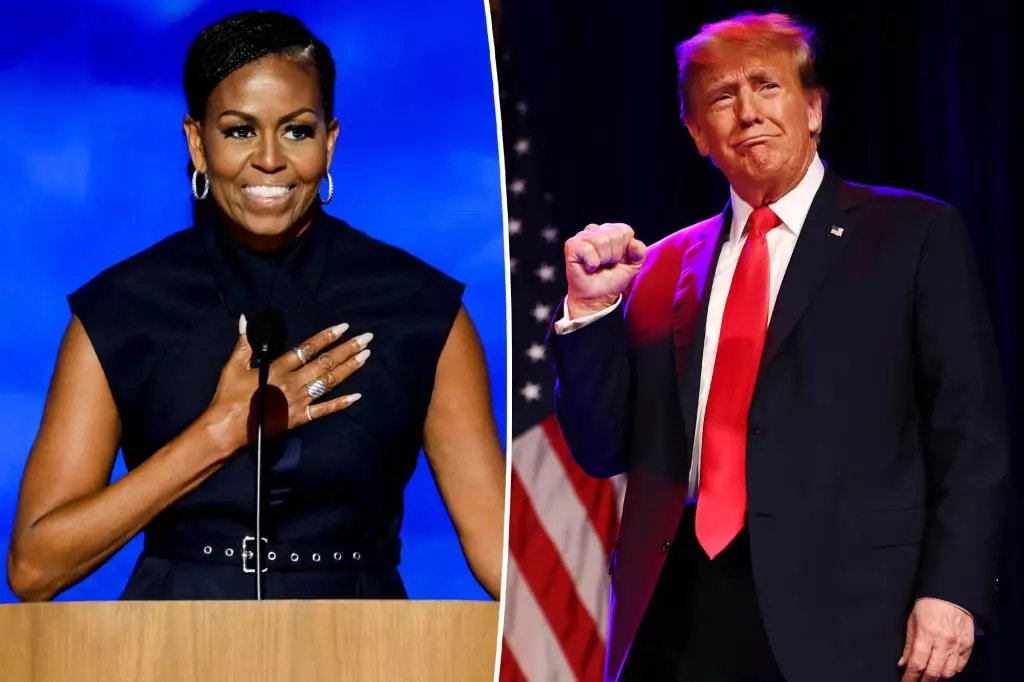The political landscape in the United States often prompts notable figures to position themselves strategically during pivotal moments. The inauguration of a new president represents such a moment, intrinsically tied to national identity, unity, and continuity. The absence of former First Lady Michelle Obama at Donald Trump’s inauguration in January 2017 became a compelling point of discussion, illustrating not just personal sentiments, but broader themes of authenticity, resistance, and the complexity of political engagement in America.
In an age where public appearances are regularly interpreted through a political lens, Michelle Obama’s decision to not attend Trump’s inauguration was laden with implications. While her husband, Barack Obama, was seen engaging amicably with Trump—most notably at Jimmy Carter’s funeral—Michelle’s absence was a stark contrast. This absence was not merely a personal choice but a calculated statement reflecting her principles and values. The Office of the Obamas framed her withdrawal as an intentional decision, reinforcing her stance as a figure of sincerity. Michelle’s history of authenticity became a focal point, showcasing her reluctance to align herself with an administration she had vocally critiqued.
The significance of being present at political events cannot be overstated. Attendance is often construed as an endorsement or a symbol of unity, thus by abstaining from the event, Michelle was articulating her disapproval without uttering a single word. Her decision subtly echoed the sentiments of many who felt that the transition of power was marred by historical grievances and ideological clashes that were, at least in part, resurrected during Trump’s campaign.
Michelle Obama’s criticism of Donald Trump was not born out of whimsy; it was rooted in observable circumstances that had unfolded during his rise to power. In her speeches, she did not shy away from addressing the broader implications of Trump’s rhetoric, particularly concerning race and identity. Her assertions at the Democratic National Convention regarding Trump’s propagation of fear highlighted the existential anxieties woven into the fabric of American politics. She conveyed that Trump’s narrow worldview not only threatened individuals like her but posed a danger to the democratic ideals she and her husband stood for.
Furthermore, Michelle’s reflections on the concept of ‘normalizing’ leadership that strived to demean others resonated deeply within a divided nation. The phrase “doing so only demeans and cheapens our politics” encapsulated a call to hold politicians accountable in a way that transcended party lines. This rhetoric became a clarion call for those who might have felt disillusioned or disenfranchised by the political discourse of the time.
Michelle Obama’s nuanced approach to her public persona can be traced back to her initial willingness to attend Trump’s inauguration in 2017. While there were murmurs of discomfort, attending the transition ceremony was interpreted as a gesture of democratic grace. However, as time progressed and Trump’s administration continued to unfold, her initial willingness was overshadowed by his actions and the divisiveness that marked his presidency. Michelle’s clarity of purpose became evident as she leaned into her role as a political commentator and advocate, advocating for social justice and equality.
Her absence from Trump’s inaugural event became emblematic of a deeper societal divide. Historically, inaugurations serve to not only welcome a new administration but also to signal a collective national commitment to governance and democracy. However, for many, Michelle’s absence echoed the sentiments of disenchantment prevalent during those tumultuous times.
In retrospect, Michelle Obama’s absence at Donald Trump’s inauguration was far more than a personal decision; it was a profound statement on integrity, authenticity, and resistance. As we navigate through evolving political terrains, her actions invite reflection on the importance of genuine representation and the responsibility of public figures to stand firm in their beliefs. In a climate where appearances often overshadow the substance, Michelle’s legacy invites future generations to embrace authenticity as a revered virtue in their political engagements.

